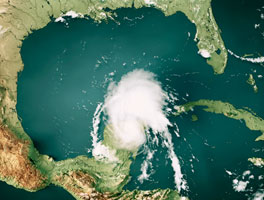 |
Dear readers,
Welcome to the Climate Weekly newsletter by the Centre for Science and Environment’s Climate Change programme and Down to Earth.
This week, Trishant Dev of CSE's Climate Change Programme writes about the key insights from his new report on the growth of voluntary carbon markets in Africa. In 2024, Africa hosts about one fifth of all projects in leading voluntary carbon market registries, along with nearly 17 per cent of total investment in these markets. This is a sizeable increase from its previous share of 3 per cent of all project listings under the UN-hosted Clean Development Mechanism.
The projects are largely focused on cookstove distribution projects and Reducing Emissions from Deforestation and Forest Degradation (REDD+) initiatives. Energy-efficient cookstoves, which can offset between 2-4 tonnes of carbon dioxide per year and can generate financial returns between US $70 and US $280, are being seen as a lucrative venture within carbon markets. Until March 2024, 380 cookstove-based projects across 36 African countries have cumulatively been issued 86 million carbon credits. Further, REDD+ initiatives, another growing sector within voluntary carbon markets, were issued 144 million carbon credits for 55 forestry and land-use projects by August 2024.
In other news from around the world, the Amazon is facing consecutive years of extreme drought while wildfires have reached a 20-year high in Brazil, Peru and Bolivia. Officials in Brazil have declared a state of emergency in six cities in the Amazon due to the drought. In August 2024, Brazil recorded 38,000 fires, with the carbon emissions from the fires reaching their highest peak since 2005.
Meanwhile, on September 22, 2024, world leaders at the UN adopted the Pact of the Future, which is a comprehensive agreement for global governance in the 21st century. The pact is an important step towards reconfiguring international relations to effectively address the pressing issues of our time. These include enhancing efforts to address climate change, sustainable development, peace and security, digital cooperation, human rights, gender rights and ensuring the rights of future generations.
Finally, CSE’s first annual Climate Week is set to be held between 15-18 October, 2024 at the Anil Agarwal Environment Training Institute (AAETI), Rajasthan. The event is aimed at exploring the challenges of climate change and development in the Global South, and will be attended by India’s leading researchers, and experts.
|
|
 |
| |
 |
|
| |
 |
 |
| |
By - Upamanyu Das
Climate Change, CSE
|
| |
|
 |
|
|
| |
 |
|
| |
| EXTREME WEATHER TRACKER |
| |
Climate impact: Half of all El Nino events could be extreme by 2050, study warns, 26 September 2024
|
 |
 |
|
|
| |
 |
|
| |
 |
 |
Experts predicted more hurricanes in the Caribbean this summer — where are the ‘missing’ storms?, 23 September 2024
|
|
|
| |
 |
|
| |
|
|
| |
|
|
| |
|
|
| |
 |
|
| |
|
|
| |
 |
|
| |
|
|
| |
 |
|
| |
CLIMATE NEWS | SCIENCE| IMPACTS| POLITICS |
|
| |
 |
|
| |
|
|
| |
 |
|
| |
|
|
| |
 |
|
| |
|
|
| |
 |
|
| |
|
|
| |
 |
|
| |
|
|
| |
 |
|
| |
|
|
| |
 |
|
| |
|
|
| |
 |
|
| |
|
|
| |
|
|
| |
|
|
| |
|
|
|